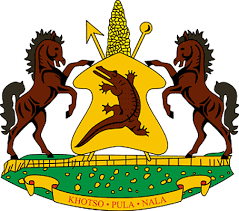Kananelo Boloetse
A few weeks ago, Khosi Malie expressed profound dismay at the quality of questions posed by Members of Parliament (MPs) to government ministers. Malie lamented that many of these inquiries were superficial, lacking the depth and gravitas one would expect in the halls of the National Assembly.
On the same day Malie voiced his concerns, I reviewed the National Assembly’s Order Paper and found a list of the questions to be debated. Among them, an MP asked about a damaged fence at a local court in one of the districts.
While such a concern might resonate with the constituents of that area, it raises a broader question about the role of MPs and the scope of their duties.
MPs, as representatives of their constituencies, may feel compelled to voice the concerns their voters would raise if given the opportunity to confront ministers directly. This instinct, while understandable, blurs the lines of the constitutional framework that governs our democracy.
Lesotho operates under a two-tier system of government: national and local government. The National Assembly is so named for a reason, it is the forum where matters of national significance should take precedence.
The National Assembly exists to deliberate on national issues, not to serve as a municipal complaints desk. MPs are not, and should not be mistaken for, emissaries of local government.
Given the persistent dysfunction of local governance structures, a failure that has spanned decades, one might sympathise with MPs attempting to fill this void.
However, rather than assuming the responsibilities of local authorities, parliamentarians should focus on ensuring that the nation has a robust, functioning local government system capable of addressing such issues independently.
As I pondered the calibre of parliamentary discourse, another revelation deepened my astonishment. On March 10, 2025, the Portfolio Committee on the Economic and Development Cluster presented its Consolidated Report on the Annual Budget and Estimates of Revenue and Expenditure for the Financial Year 2025/2026 to the National Assembly.
Within this document, the committee listed several entities, among them the Basotho Enterprise Development Corporation (BEDCO), the Lesotho Tourism Development Corporation (LTDC), and the Lesotho National Development Corporation (LNDC), accusing them of failing to remit dividends to the government.
This assertion struck me as perplexing and prompted me to do a deeper inquiry into the nature of these organisations and their obligations.
BEDCO, LTDC, and LNDC are not conventional companies or profit-driven enterprises; they are statutory corporations, established through legislation to advance public policy objectives.
Unlike the Lesotho Electricity Company (LEC) or the Water and Sewage Company (WASCO), which are registered as companies under the Companies Act and operate with shareholders, BEDCO, LTDC, and LNDC resemble bodies like the Lesotho Communications Authority (LCA), the Independent Electoral Commission (IEC), the Directorate on Corruption and Economic Offences (DCEO), or the National University of Lesotho (NUL).
Imagine the absurdity of the National Assembly demanding dividends from the IEC or the DCEO, it would be laughable.
Statutory corporations are typically designed to reinvest their revenues into their mandated activities, not to distribute profits like companies. If the government expects financial remittances from such entities, this must be explicitly stipulated in law, not presumed as a matter of course.
When I raised this anomaly with a media colleague, they countered that LNDC, in particular, holds shares in various companies on behalf of the government and should therefore pass along dividends received from those investments.
This argument merits scrutiny.
The LNDC, established under the LNDC Act No. 20 of 1967 (and amended in 1990 and 2000), is a parastatal tasked with spearheading Lesotho’s industrial development.
Its legal mandate is clear: to “initiate, promote and facilitate the development of manufacturing and processing industries, mining and commerce” to boost income and employment.
To achieve this, the Act empowers LNDC to raise, lend, or borrow funds, invest in projects, and provide technical or financial assistance, not to serve as a profit-generating arm of the state.
This raises three critical questions: First, should LNDC itself be required to pay dividends to the government? Second, should the companies in which LNDC holds stakes declare dividends, which LNDC then channels to the government? Third, and most fundamentally, is LNDC the appropriate vehicle for managing state investments?
The law positions LNDC as a facilitator of industrial growth, not a cash cow for the treasury.
LTDC, on the other hand, was established under the Lesotho Tourism Act of 2002, a legislative framework that defines its structure and purpose. Section 3(3) of the Act mandates that the Registrar of Companies enter the LTDC’s name into the Register of Companies.
Section 16(1) stipulates that the corporation’s share capital is to be determined by the Minister, with the government holding a majority stake of 51 percent.
Further, Section 16(2) requires the Minister of Finance to subscribe to these shares, drawing funds from the Consolidated Fund as needed by the LTDC, while Section 16(3) clarifies that these shares are non-transferable and must be registered in the name of the Ministry.
Most pertinent to this discussion, however, is Section 17(4). This provision explicitly states that all income, property, and profits of the LTDC, regardless of their source, must be dedicated solely to advancing the corporation’s functions.
Crucially, it prohibits the payment of dividends to shareholders, including the government.
I wish to quote that section verbatim: “All income and property, and all profits of the Corporation, from whatever source they may be acquired, shall be applied exclusively to the promotion of the functions of the Corporation and no dividend shall be paid to the shareholder.”
This unambiguous directive underscores that the LTDC is not designed as a profit-distributing entity, but rather as a vehicle for promoting tourism development, with its resources reinvested to fulfill that mandate.
Clearly, LTDC was not designed to function as a profit-generating enterprise for government revenue. Expecting it to pay dividends contradicts its legal purpose.
If the government seeks returns from its investments, it must establish a coherent, legally grounded mechanism, something LNDC, BEDCO, and LTDC were never designed to provide. Demanding dividends from these entities without a clear statutory basis is not only misguided but risks undermining their core missions.
A more rational solution lies in the creation of a dedicated state holding company, a model successfully adopted by other nations. South Africa’s Public Investment Corporation (PIC), for instance, manages state pension funds and investments with transparent governance structures.
In Singapore, Temasek Holdings exemplifies how a sovereign investment company can steward state assets with financial discipline.
A Lesotho State Holding Company could consolidate all commercial investments under one roof, equipped with a clear dividend policy, rigorous financial reporting, and professional management.
This would eliminate the legal ambiguity and inefficiency of expecting statutory corporations to double as profit centres while ensuring that public investments contribute to both national development and government revenue.
The root of this confusion, however, may lie in the calibre of our elected representatives. In the 2022 elections, wealth and business acumen were often touted as qualifications for parliamentary seats.
However, some of these “successful businessmen,” a few reportedly running their empires from their bedrooms, now sit in the National Assembly, grappling with issues they seem ill-equipped to address.
Parliament should be a place of rigorous debate and informed policymaking, not a stage for shallow discussions and misguided financial expectations. MPs must educate themselves on their constitutional duties, understand the difference between national and local government, and stop treating statutory corporations as profit-making enterprises.
If Lesotho is to move forward, we need a Parliament that asks the right questions, debates national issues with depth, and makes decisions grounded in law and logic. Right now, we are far from that reality.
Summary
- While such a concern might resonate with the constituents of that area, it raises a broader question about the role of MPs and the scope of their duties.
- On March 10, 2025, the Portfolio Committee on the Economic and Development Cluster presented its Consolidated Report on the Annual Budget and Estimates of Revenue and Expenditure for the Financial Year 2025/2026 to the National Assembly.
- Unlike the Lesotho Electricity Company (LEC) or the Water and Sewage Company (WASCO), which are registered as companies under the Companies Act and operate with shareholders, BEDCO, LTDC, and LNDC resemble bodies like the Lesotho Communications Authority (LCA), the Independent Electoral Commission (IEC), the Directorate on Corruption and Economic Offences (DCEO), or the National University of Lesotho (NUL).

Lesotho activist and journalist who is the Chairperson of the Media Institute of Southern Africa (MISA) Lesotho. He is an International Visitor Leadership Program (IVLP) alumnus.
Boloetse is driven by the need to protect and promote the rights of others, especially the marginalized segment of society. He rose to prominence as an activist in 2018 when he wrote to Lesotho communications Authority (LCA) asking it to order Econet Telecom Lesotho (ETL) and Vodacom Lesotho (VCL) to stop charging expensive out-of-bundle rates for data when customers’ data bundles get depleted.








